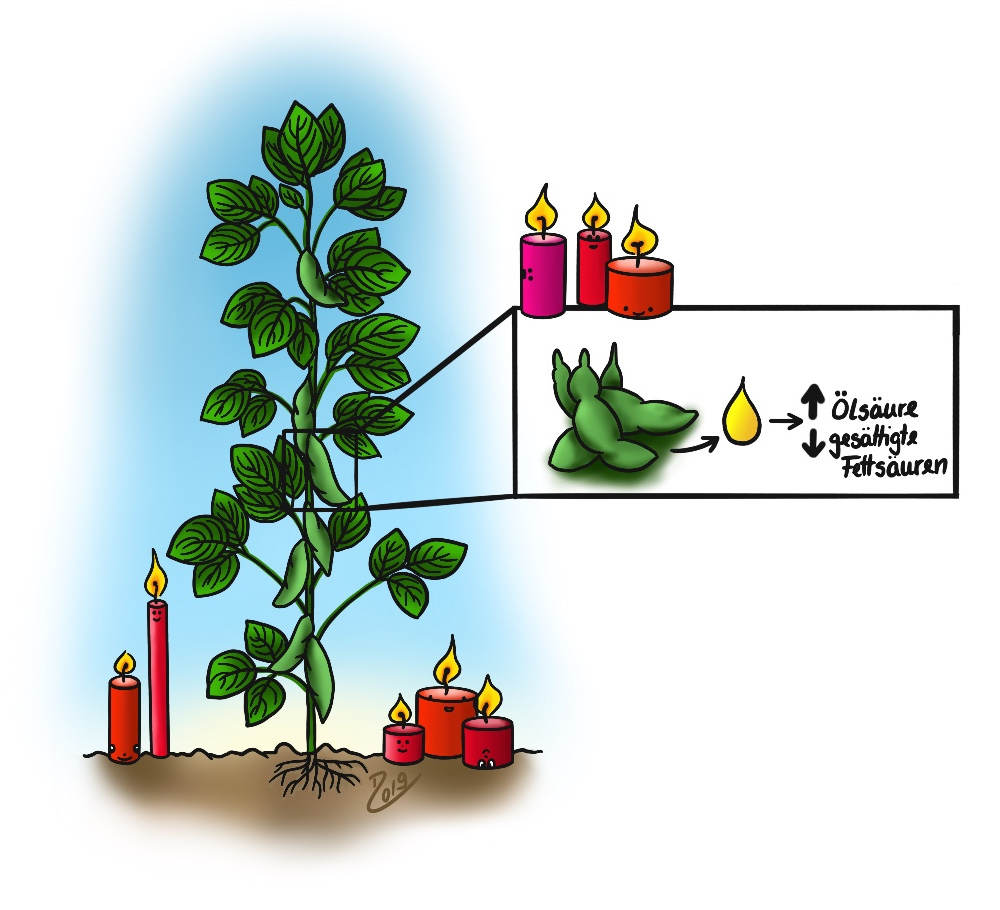17
back


Crop: Soybean (Glycine max)
Property: Improved oil quality
Soybean oil is used in foodstuff and for industrial applications. It contains high amounts of healthy, polyunsaturated fatty acids. However, when roasting or deep-frying with soybean oil (and other oils high in polyunsaturated fatty acids), potentially harmful and taste-altering degradation products may be formed. To counteract this and to ensure a better stability of the oil during frying, fat was often artificially hardened, which results in trans-fatty acids. Trans-fatty acids play a role in the development of cardiovascular diseases and their content in food should be kept as low as possible. As an alternative to hardening, scientists from Calyxt, a young US biotech company, have used the TALEN technology* to specifically trigger two mutations in the soybean genome. The processed soybeans contain less unsaturated fatty acids, but significantly more of the heat- and oxidation-stable oleic acid. As a result, fewer harmful by-products are formed during roasting or deep-frying, while industrial hardening is unnecessary. The variety developed in this way is already commercially cultivated and marketed in the USA and is not classified as genetically modified in the USA.
Publication
| Title | Direct stacking of sequence-specific nuclease-induced mutations to produce high oleic and low linolenic soybean oil |  |
| Authors | Zachary L. Demorest et al. | |
| Country | United States | |
| Journal | BMC Plant Biology | |
| Year | 2016 | |
| DOI | doi:10.1186/s12870-016-0906-1 |
